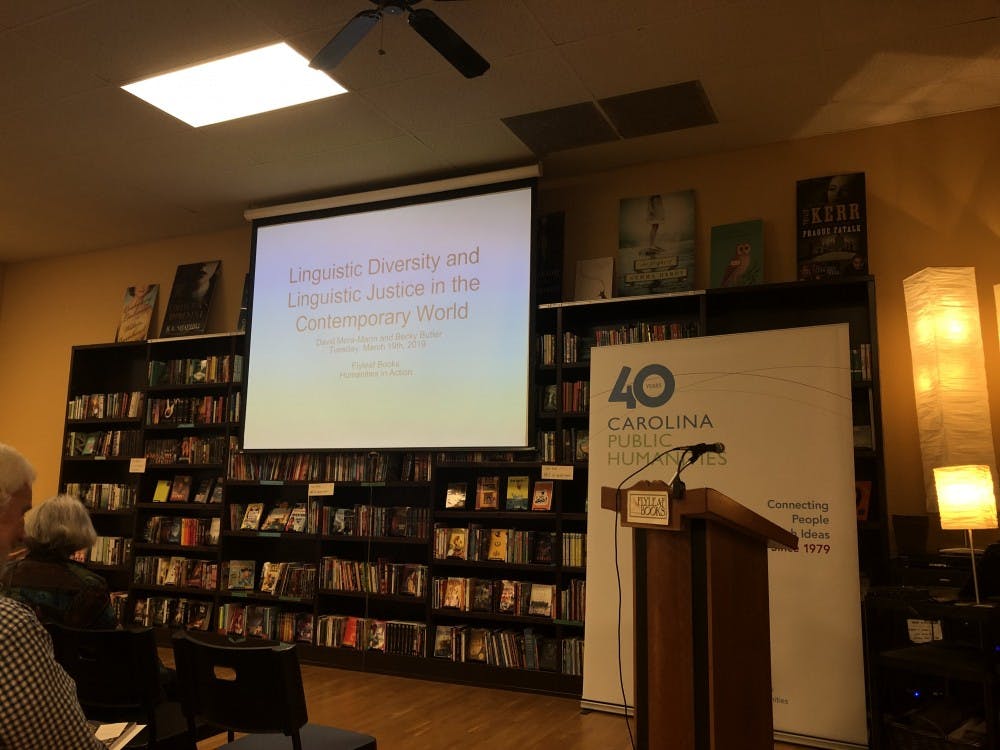In today’s world, over 7,000 languages are spoken by over seven billion people. However, about half of these languages are dying.
Professors David F. Mora Marín and Becky Butler presented their arguments on why it is important to preserve ancient languages around the world and how linguistics play into the everyday lives of UNC students Tuesday at Flyleaf Books. The lecture was a part of Carolina Public Humanities’ Humanities in Action series.
Mora Marín is a specialist in Mayan linguistics and focused his part of the presentation on the idea of linguistic endangerment. Essentially, languages all around the world are going extinct. Mora Marín said the United Nations General Assembly declared 2019 as the “International Year of Indigenous Languages” to counteract this phenomenon.
He explained that linguistics don't simply define the language one speaks, but also the ways in which people understand their surroundings. For example, a study he conducted showed that Yucatán speakers are more prone to identify objects based on their materials, while English speakers are more likely to identify objects by shape.
“When you think about 7,097 languages around the world, we are also thinking, perhaps, of that many different ways of imagining what the world is like,” Mora Marín said.
Mora Marín said linguists are doing their part to prevent linguistic endangerment through documentation of dying languages and revitalization of the languages. Revitalization efforts include bilingual and immersion schools, university programs and family language programs.
When Butler took the podium to speak, she directed the conversation more locally and transitioned from Mora Marín’s ideas of linguistic diversity to dialect diversity.
Dialects are different ways of speaking the same language, and Butler focused on dialects of the English language. She played recordings of English speakers who had Irish, African-American English, Outer Banks and Lumbee dialects to show how different upbringings can affect how speakers of the same language communicate differently.
Butler conducted a study about UNC students’ dialects and found that there are many stereotypes associated with certain dialects. For example, a student with an African-American dialect said that he had been told, “Speak correctly. You sound dumb and colored,” according to her slide show presentation.




